President Barack Obama’s presidential heroes are Lincoln and FDR, but if Afghanistan spins out of control, he is more likely to find himself compared to Lyndon B. Johnson. The latter’s major agenda of social change at home — the Great Society — was undercut by a war in Vietnam he couldn’t win. Like Johnson, Barack Obama came to the White House with the promise of social change — and a war in Afghanistan inherited from his predecessor that shows no signs of resolution. Recently, the New York Times reported that in June Obama invited a number of American historians to […]
Afghanistan Archive
Free Newsletter
Ever since I got back from vacation, I’ve been putting off one unavoidable post. It has to do with Afghanistan, where the online debate seems to have shifted from tactics to strategy. Namely, does the U.S. have a vital strategic interest in Afghanistan-Pakistan that justifies our continued military presence there? I think I’ve been dreading formulating my thoughts on this one because in some ways, I think the theoretical debate is irrelevant. Until we’re operating in support of a credible and legitimate national government, until we have a unity of command that includes allies willing to fight and able to […]
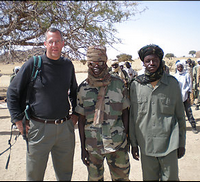
One thing I’ve discovered from writing columns over the years is that they’re a great way to elicit invitations to sit down and talk with various players in the national security establishment. All you have to do is mention somebody’s office and you’re likely to get an e-mail from their public affairs officer eager to set your thinking straight. And so it was last week that I had the chance to converse with Ambassador John Herbst, three years in the job now as the State Department’s Coordinator for Reconstruction and Stabilization. I earned the invitation by describing the CRS job […]
Anand, commenting over at Joshua Foust’s Registan blog, comes up with about the best analysis I’ve seen of the strategic incoherence of our Afghanistan mess: There seem to be three different strategies . . . on three different planets: 1) Short-term “TRIAGE” or improvement in security (McChrystal, Abu Muqawama and most of the press).2) Medium-term Afghan capacity building (CSTC-A, OMLTs, TTs, civilian advisers to GIRoA civilian agencies).3) Long-term economic development (UNAMA’s planet, and the planet thatNGOs, Japan’s, India’s, Germany’s, EU’s and many other internationalaid agencies live on). Whence will the three planets meet? Outside of the improper usage of “whence,” […]
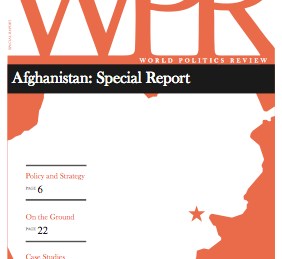
World Politics Review’s new special report on the Afghanistan warcompiles news, analysis and opinion from WPR’s pages to provide insightinto the situation on the ground, as well as the strategic questionsfaced by U.S. and coalition policymakers. Non-subscribers can purchase individual copies at the Scribd store, while subscribers can download the report free from our document center. Not a subscriber? Sign up for a four-month free trial. (The four-month trial offer expires Sept. 30). Below is the report’s table of contents: -Introduction from the WPR Editors -ABU MUQAWAMA ON AFGHANISTAN: AN INTERVIEW WITH ANDREW EXUMBY JUDAH GRUNSTEIN July 29, 2009 Policy […]
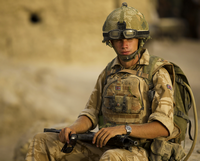
Editor’s Note: The following is a letter to the World Politics Review editor from Simon Shercliff, first secretary for foreign security and policy at the British Embassy in Washington. To the Editor: It’s important that I set the record straight on David Axe’s World Politics Review column entitled “Afghanistan Could Portend British Pull-out” and his subsequent and related blog post on Wired’s Danger Room, both of which wrongly argued that the 200th British soldier killed last week in Afghanistan could potentially weaken the U.K.’s resolve and long-term commitment to Afghanistan. No one can doubt the U.K.’s commitment to this mission. […]
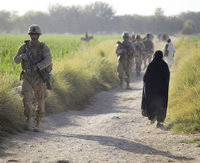
In one of the most quoted aphorisms in international relations, the Prussian political philosopher Carl von Clausewitz said that “war is merely a continuation of politics.” In other words, for every war that has been waged, we can point to political aims underpinning its waging. Take some recent examples. In large part, the 1991 Persian Gulf war was about exerting power: It sought to prevent an invasion of Saudi Arabia and oust Iraqi forces from Kuwait. However, in Vietnam, the end goal was political influence: The war was fought to keep the south from falling to the communists. The examples […]

On Thursday morning, a bomb exploded in Helmand Province in southern Afghanistan, injuring a British soldier. Two days later, the soldier died at a hospital in Great Britain. He was the 200th U.K. fatality in the eight-year-old Afghanistan war. British newspapers marked the milestone with a flurry of grim news reports. And in short order, fighting claimed four more British troops. Great Britain has around 9,000 troops in Afghanistan — the biggest national contingent, after the U.S. British forces are concentrated in the restive south, especially in Lashkar Gah, the capital of Helmand province. U.S. Secretary of Defense Robert Gates […]
There is tremendous buzz about Afghanistan’s elections. Open up any op-ed page, and you can find countless articles about votes and democracy and Karzai not instantly winning, and whatever else. But what I don’t get is why anyone cares.Democratic elections usually rest on a few basic principles: a free and fair vote, an uncoerced selection of candidates, and an agreement by all parties to abide by the results. Afghanistan doesn’t quite qualify for any of these. *Take the idea of a free and fair vote. Pajhwok, an internationally-funded independent Afghan news service, has an entire news page set aside for […]
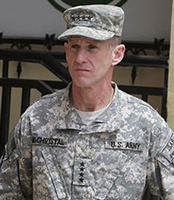
Will the White House approve even more troops for Afghanistan? As Gen. Stanley McChrystal reevaluates the war strategy, he has reportedly considered as many as 30,000 more, and he’s making a strong case. So much that an interview with the Wall Street Journal resulted in a front page headline declaring the, “Taliban Now Winning.” But the troop numbers don’t tell the whole story. Or, the story doesn’t tell all the troop numbers. Almost all counts circulated these days consist of “boots on the ground” assessments. Only, as a single measure, boots on the ground is only a part of the […]
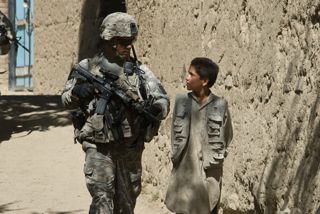
JALREZ VALLEY, Afghanistan — It’s a chilly summer night in the Jalrez valley, lit well by a three-quarter moon. I’m on a mission with the men of the 4/25 Artillery Battalion, part of the 3rd Brigade Combat Team of the 10th Mountain Division, based in the Wardak and Logar provinces. We are weaving through ancient irrigation canals and wading across the numerous small rivers that feed the fertile valley, making our way to a medium sized village nestled into a hillside. Our winding path has been carefully chosen to minimize the chance that we will step on an IED, but […]
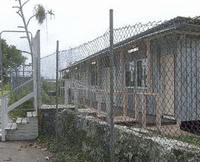
MELBOURNE, Australia — It’s mid-week on a chilly Melbourne morning, and from halfway across the world in London, a call comes in to the Asylum Seeker Resource Center (ASRC). On the other end of the line is a nervous Afghan woman. Pamela Curr, campaign coordinator at the ASRC picks up the message as she arrives for work: Another boat has been seized off Ashmore Reef and diverted to Christmas Island in the middle of the Indian Ocean. There, the 70-odd Afghans on board will have their claims for asylum processed. Among them is the cousin of the caller from London, […]
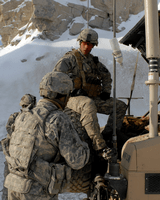
If July represents the first results of the Afghanistan surge, the portrait is sobering. With 75 troops killed, it was the deadliest month for the coalition since the war began. The British, who have about 9,000 soldiers in the country, were hit particularly hard, with eight soldiers killed in less than 24 hours recently. The painful news sounded political echoes in London. The House of Commons Foreign Affairs Committee announced last week that “avoidable mistakes” have been part of a deficient strategy, leading to mission creep. It singled out the U.K.’s anti-poppy campaign, in particular, as a “poisoned chalice.” All […]
Brian Till makes a very good point: As we begin to re-imagine the world for the twenty-first century –Sergio’s world, as Power is fond of saying, of “broken people andbroken states” — it seems that building successful legal systems needsa bigger niche than we typically afford. This is true in South Asia, where filling the “rule of law” vacuum has historically been an opening for Taliban influence. In Pakistan, particularly, a significant amount of the military-civilian jockeying has played out recently — and currently — over the independence of the judiciary. This is also a good example of a concrete […]
On the merits, I agree with Andrew Bacevich that the war in Afghanistan does not answer to America’s vital interests. To begin with, to whatever degree we deny al-Qaida the tranquility of safe havens there — or in the Pakistani FATA — they will find other locales to replace it. To the extent that we destroy al-Qaida as an operational threat, whatever urge it gives expression to will find some other organizational structure to replace it. The best we can do to fight, not terrorism, but these terrorists is to contain them until their movement burns itself out, which — […]
